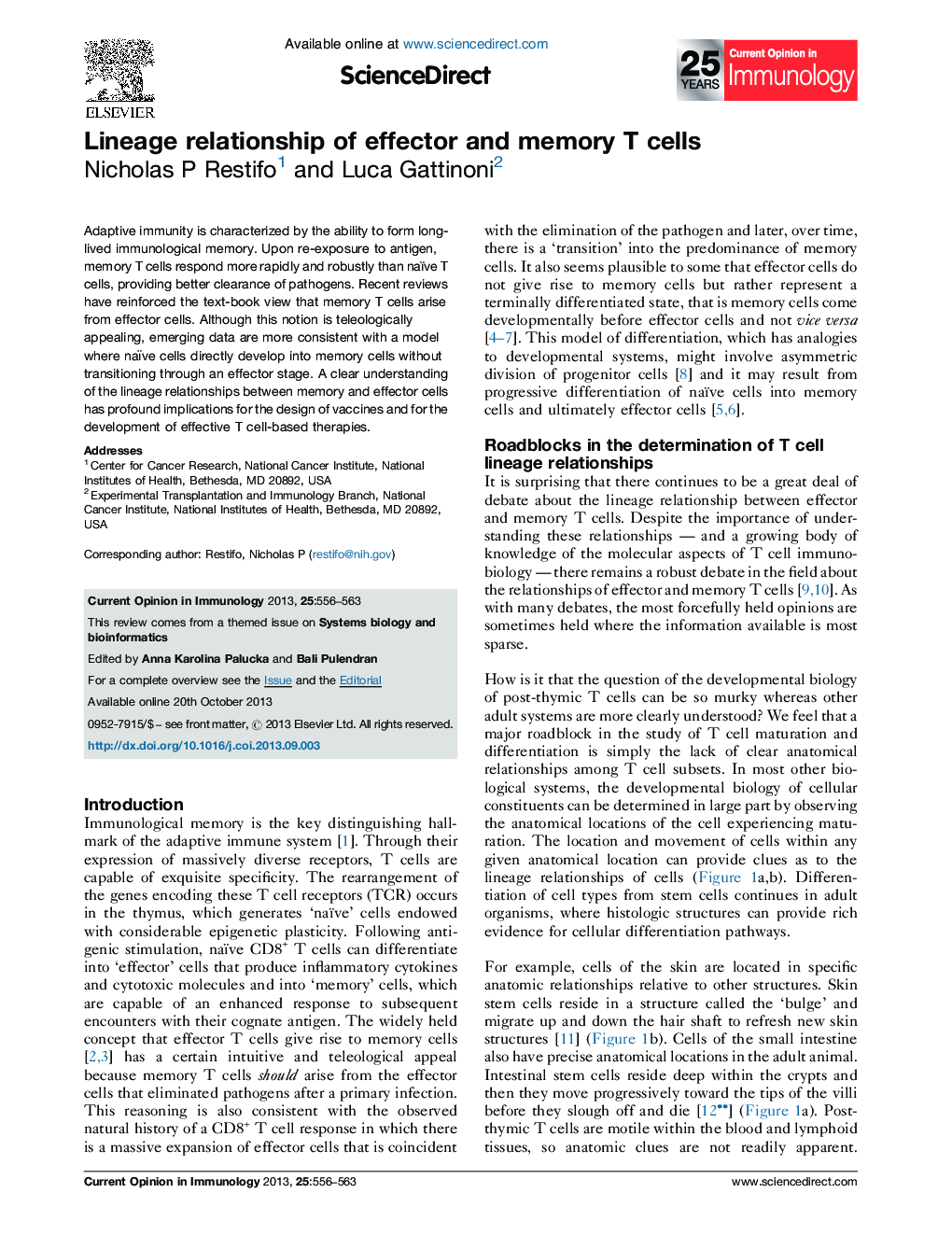| Article ID | Journal | Published Year | Pages | File Type |
|---|---|---|---|---|
| 3345822 | Current Opinion in Immunology | 2013 | 8 Pages |
Abstract
Adaptive immunity is characterized by the ability to form long-lived immunological memory. Upon re-exposure to antigen, memory T cells respond more rapidly and robustly than naïve T cells, providing better clearance of pathogens. Recent reviews have reinforced the text-book view that memory T cells arise from effector cells. Although this notion is teleologically appealing, emerging data are more consistent with a model where naïve cells directly develop into memory cells without transitioning through an effector stage. A clear understanding of the lineage relationships between memory and effector cells has profound implications for the design of vaccines and for the development of effective T cell-based therapies.
Related Topics
Life Sciences
Immunology and Microbiology
Immunology
Authors
Nicholas P Restifo, Luca Gattinoni,
